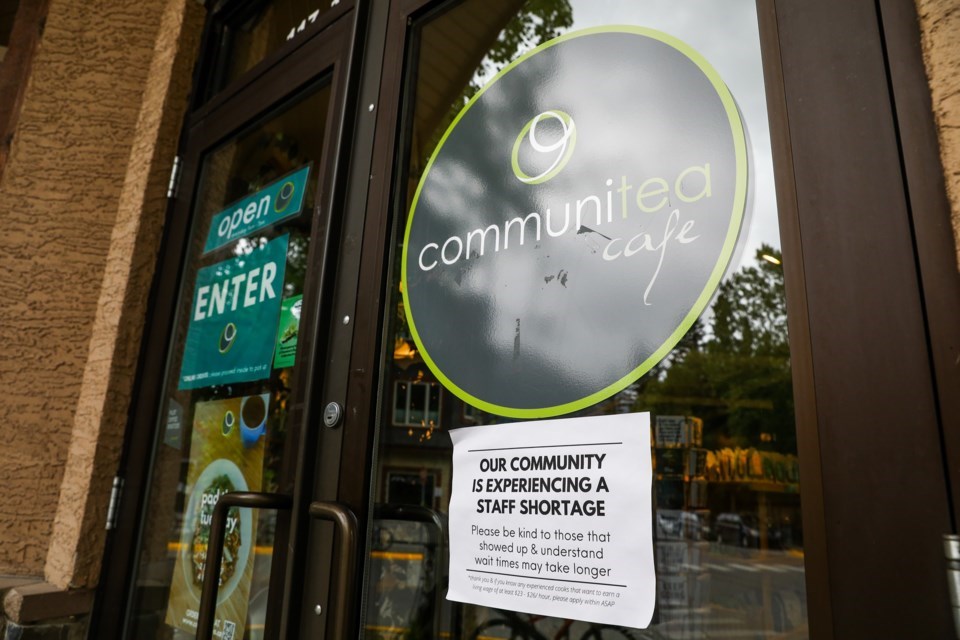Alberta’s Bow Valley’s hospitality sector, one of the main economic muscles in Banff, Canmore and Lake Louise, is direly understaffed and it's forcing businesses to make tough financial decisions.
“It’s the worst I’ve ever seen,” Michel Dufresne, director at the Job Resource Centre in Banff and Canmore said of his 30 years of living and working in the Bow Valley about the lack of workers.
“Everyone has pitched up wages, but it doesn’t matter what you pay; there’s nobody to take the job."
Dufresne added statistics from five years ago showed there were between 2,000 to 3,000 foreign workers in the Bow Valley who made up between 20 to 30 per cent of the hospitality workforce.
When the COVID-19 pandemic hit in March 2020 and businesses began layoffs, there was a mass exodus of international workers from the Bow Valley returning to countries such as the Czech Republic, the U.K. and Australia.
“We have a very low inventory of job-seekers at this point,” said Dufresne. “High volume of job postings for everything in hospitality. This year is worse because we don’t have the foreigners, we don’t have the eastern Canadians, we don’t have the out-of-area traffic we used to get.”
"One of the bulk groups is the Australians. They're not allowed to leave. They can leave for essential travel only. The work visa program, that’s shut down now and we don’t anticipate it to open until the new year."
According to the latest Statistics Canada data, nationally, the workforce in food services and accommodation grew by 35,000 in July – the most of any sector. Alberta was not among the notable provinces where the increase happened, which were in Ontario and Manitoba.
Tourists have been flocking to the Bow Valley in the pre- and post-vaccination era, and the High Country Inn in Banff is taking precautions to make sure guests – and employees – are taken care of during despite being understaffed.
The hotel, which has an average one-night stay ranging from $235 to $300, has been turning guests away on occasion by blocking online reservations.
“There’s definitely a [financial] loss there,” said Jordan Irwin, general manager at High Country Inn. “But I’m happy with revenue and the quality of the product we’ve been able to deliver to guests without making our staff work crazy hours.”
In order to attract new staff and keep current members, Irwin said the hotel has increased wages and a bonus structure is being offered.
Pre-COVID-19, Irwin regularly saw job-seekers with a stack of paper resumes going from property-to-property on Banff Avenue looking for work. He said it’s been a “big hit” without the international market, whom Banff relies upon for staffing.
“I think on the simplest terms for us, you take away working holiday visas, and you take away the need for a lot of entry-level Canadian staff with the CERB and there’s not a lot left over,” said Irwin. “I would say that’s the environment the government’s created with the program with CERB [Canadian Emergency Response Benefit].
“I’m very thankful for the subsidies that they’ve provided for businesses, but on the other hand, I think it’s been too generous with the CERB and there’s always a lag period when something like that ends before you see the workforce get back and intact again.”
CERB, which provided millions of Canadians with financial relief during the COVID-19 pandemic, ends September 25.



